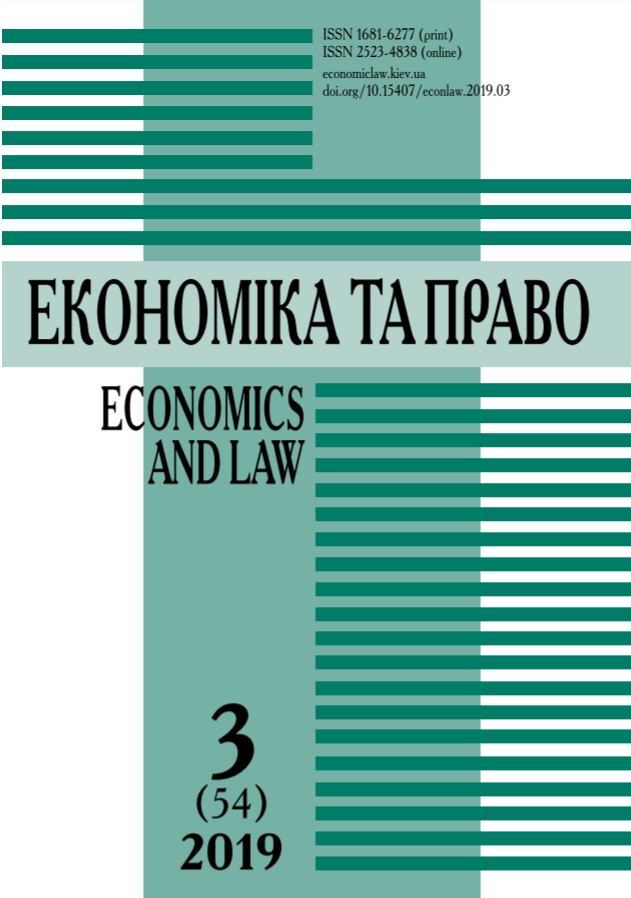JUDICIAL LAW-MAKING IN THE ISSUES OF ECONOMIC JURISDICTION
DOI:
https://doi.org/10.15407/econlaw.2019.03.034Keywords:
judicial jurisdiction, economic disputes, economic cases, jurisdictionality, Supreme CourtAbstract
The article is devoted to the powers and restraints of the Supreme Court in the adjustment of judicial jurisdiction. Judicial jurisdiction should be distinguished from judicial competence, since the latter is a generic concept that includes all the powers of the court (including the settlement of a dispute involving a judge, etc.). Judicial jurisdiction in Ukraine is divided into constitutional and general. Within the general judicial jurisdiction, economic, administrative, civil and criminal jurisdiction is allocated. The Law of Ukraine dated 03.10.2017 No. 2147-VIII, which fully updated the procedural codes, was able not only to fill in some of the gaps and to overcome the long-standing contradictions in the delimitation of judicial jurisdiction, but also to create completely new ones. Instead, the newly created Supreme Court was empowered to formulate a consistent judicial practice, including jurisdiction issues. The question is whether he will be able to concentrate the consideration of economic disputes within the courts of economic jurisdiction in such a way that he does not replace the legislator and does not violate or ignore the applicable procedural rules. It is concluded that economic jurisdiction in cases not expressly provided by procedural law can be extended for separate categories (subcategories) of disputes by the Supreme Court. The starting point should be the subject criterion (in particular, the nature of the disputed legal relationship), and the precaution should be the observance of legally established principles of division of jurisdiction. The Supreme Court should not only assert that the economic disputes belong to the economic jurisdiction, but also state the reasons for their non-civil or non-administrative nature.
References
Black’s Law Dictionary. Ed. by Bryan A. Garner. 9th ed. St. Paul: West, 2009. 1943 p.
Shevchuk S.V. Sudova pravotvorchist: svitovyi dosvid i perspektyvy v Ukraini. Kyiv: Referat, 2007. 640 p.
Komarov V.V. Novelizatsiia tsyvilnoho protsesualnoho zakonodavstva ta zasady novoho Tsyvilnoho protsesualnoho kodeksu Ukrainy. Visnyk Akademii pravovykh nauk Ukrainy. 2003. No. 2-3 (33-34). P. 467-482.
Pobirchenko I.H. Vybrane. Kyiv: Osvita Ukrainy, 2013. 544 p.
Rieznikova V.V. Zvuzhennia kola sprav, pidvidomchykh hospodarskym sudam Ukrainy: problema nadumana chy realna? Naukovyi visnyk Uzhhorodskoho natsionalnoho universytetu. Seriia "Pravo". 2013. Iss. 22. Ch. 2. P. 59-75.
Rieznikova V.V. Pidvidomchist sprav hospodarskym sudam Ukrainy: problemy teorii ta praktyky. Visnyk Kyivskoho natsionalnoho universytetu imeni Tarasa Shevchenka. Yurydychni nauky. 2014. No. 1 (99). P. 24-32.


